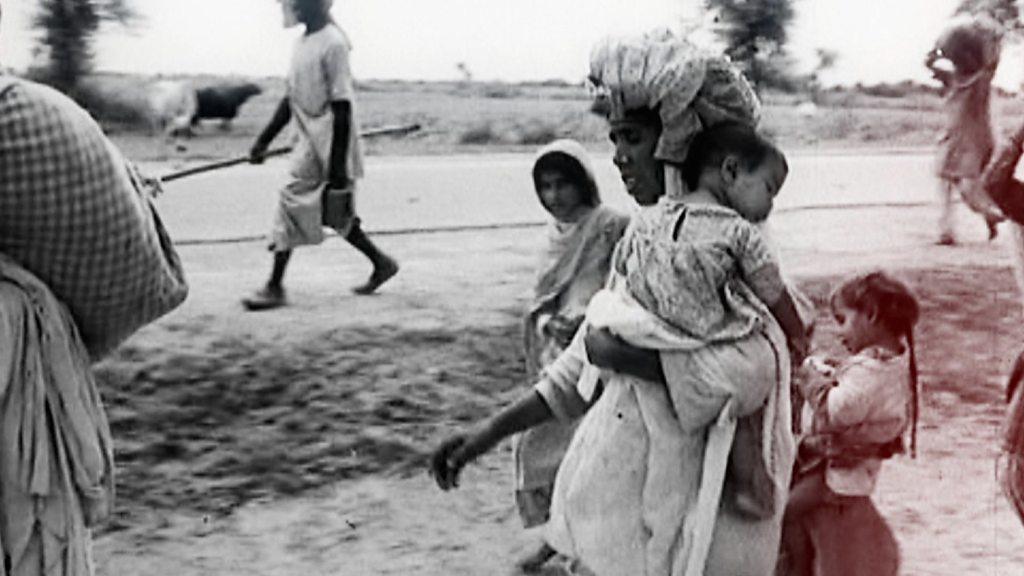Kashmir: Region in lockdown after India takes away Kashmir's independence
- Published
Where is Kashmir?
India has removed Kashmir's special status. This had given the region a certain level of independence from the rest of India.
This means it can no longer control how it is run, and because of this, life for people living in Kashmir has changed dramatically.
Telephone networks and the internet have been cut off since, with tens of thousands of soldiers patrolling the streets.
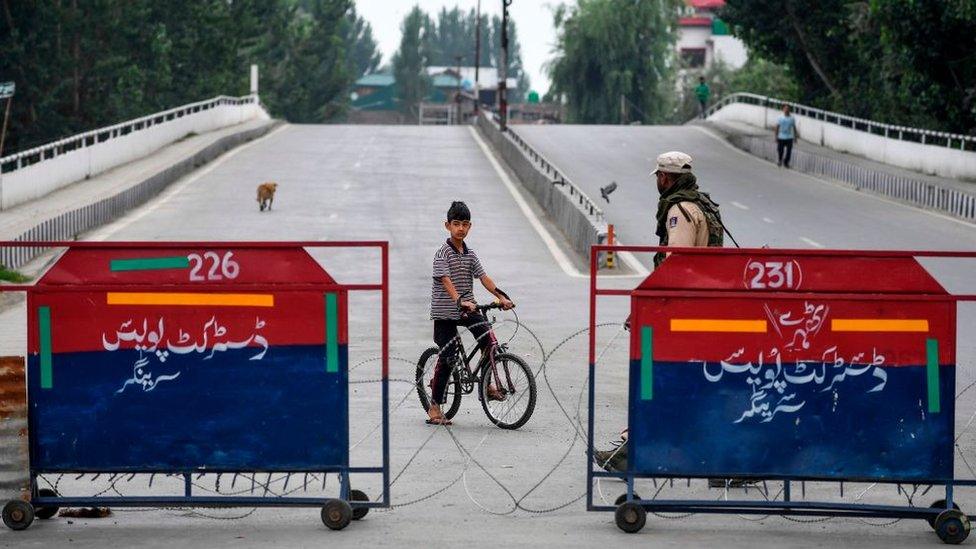
Some political leaders in Kashmir have also been arrested.
The Indian government says the phone and media blackout was planned to prevent possible violence or unrest caused by the announcement that the region's status had changed.
Curfew-like conditions have been imposed, and rules stopping more than four people gathering in the streets together have been introduced.
Officials said the restrictions would not be in place for long.
So why has all this happened?
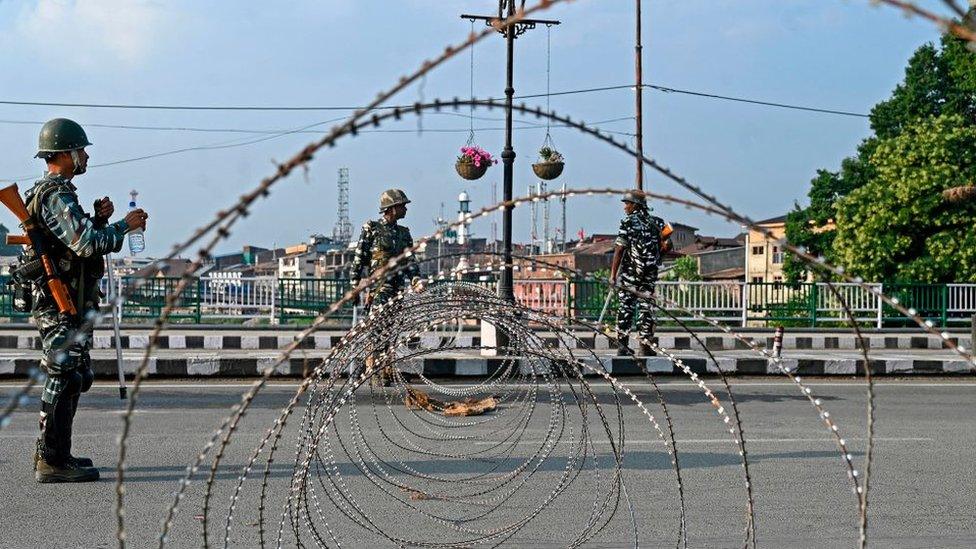
Background
Kashmir is a large area in the Himalayan region of Asia.
Both Pakistan and India believe it should be part of their country, with each currently controlling different parts of it. There is a relatively small area also controlled by China.
Some people in the Indian-administered part of Kashmir do not want to be ruled by India, instead preferring to be part of Pakistan or becoming independent.
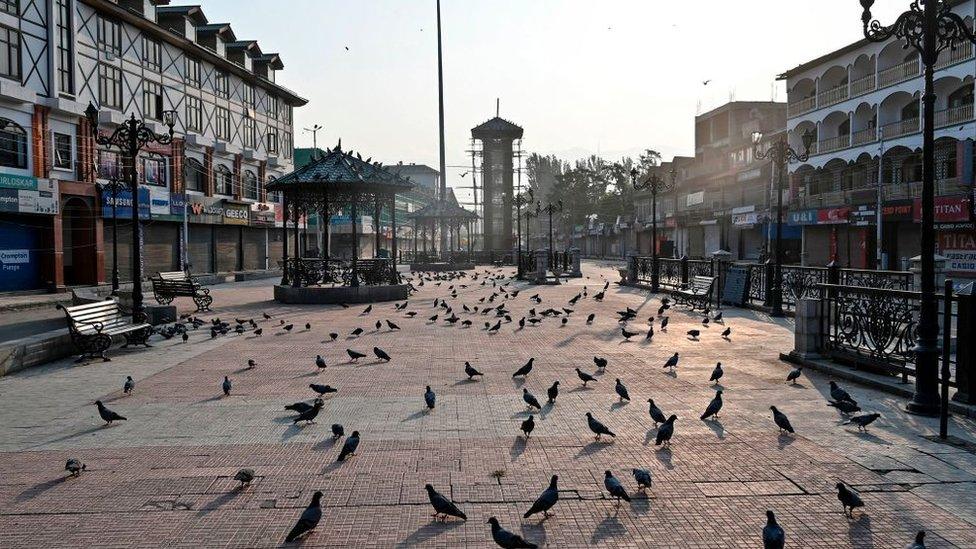
Busy town squares like this have been deserted because of restrictions on meeting
Kashmir has long been a disputed territory, particularly since Partition in 1947.
This has led to lots of fighting in Kashmir and there have been thousands of deaths over several decades of clashes.
Tensions increased earlier in 2019, after an attack on Indian troops near the border with Pakistan.
Read more about the conflict in Kashmir.
Why has India taken away control from Kashmir?
The Indian government is led by a political party called the BJP. They made removing Article 370 - the law that gave Kashmir its special status - part of the party's 2019 election promises. A coalition of parties led by the BJP won that election so the party now wants to fulfil some of the promises it made.
Article 370 gave the region control over its constitution, the freedom to make laws, and have a separate flag, as well as make rules about who could live there, and own property.
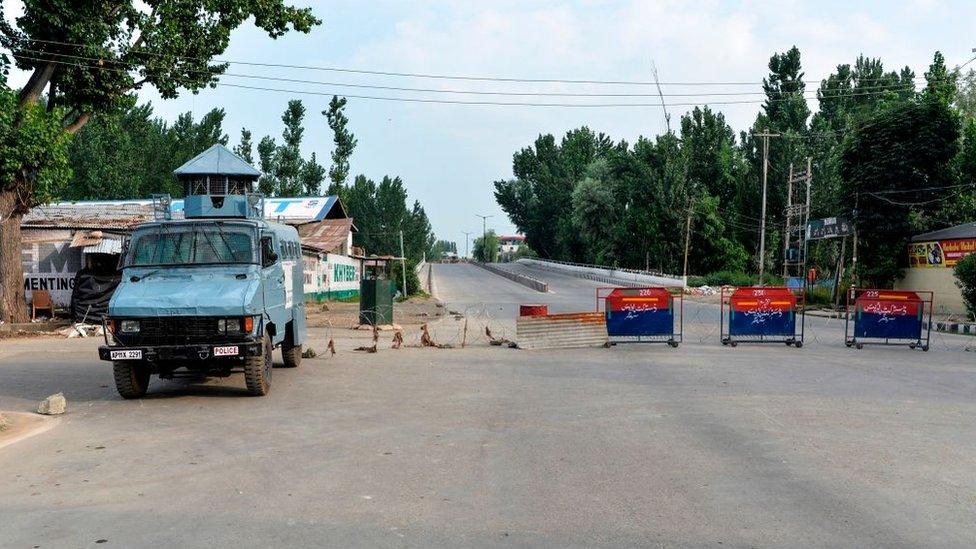
However, foreign affairs, defence and communications remained under the control of the Indian government.
For many people in the Indian-administered areas of Kashmir, Article 370 was the reason they were willing to accept Kashmir being part of India.
The Indian government said Article 370 needed to be removed to make the state equal to the rest of India. The government said the special status had been preventing the region's development and integration with India.
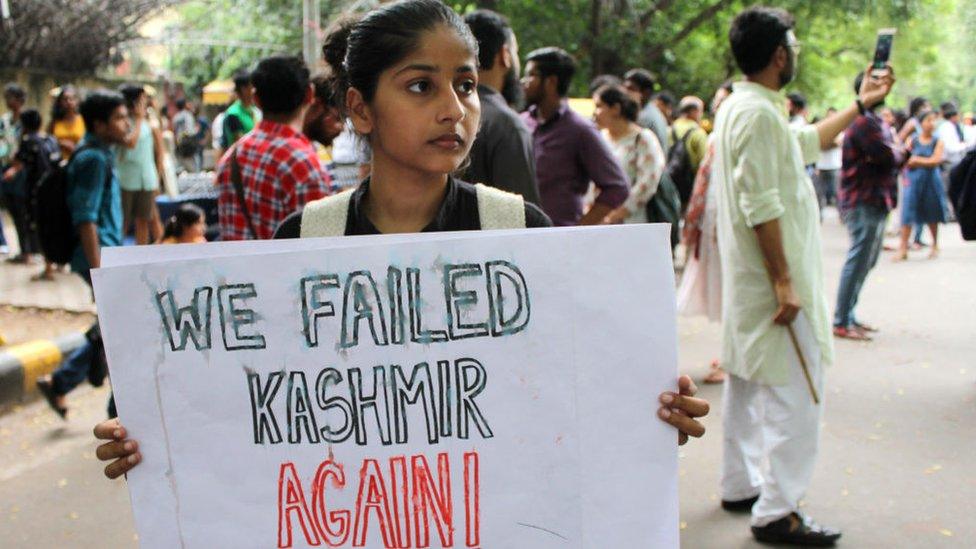
People in New Delhi have been protesting against the move, but others agreed with the Indian government's decision to scrap Article 370
But many Kashmiris believe that the real reason is because they want to change the kind of people who live in the Muslim-majority region.
Currently only people from Kashmir are allowed to own land there, but getting rid of Article 370 would mean that is no longer the case.
The Indian-administered part of Kashmir is the only state within India where Muslims are in the majority.
The largest religion in India is Hinduism, while neighbour Pakistan has a majority of Muslims.
What is likely to happen next?
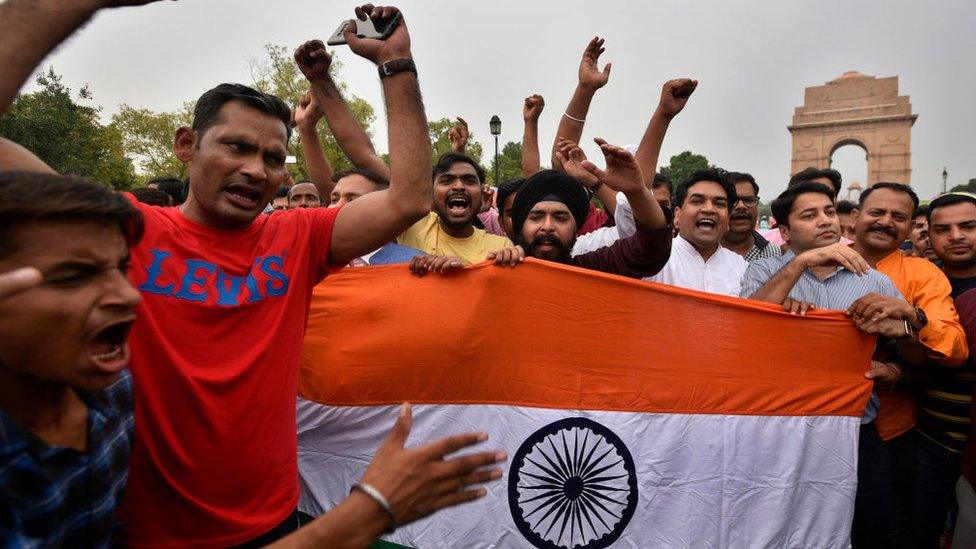
These supporters have taken to the streets in New Delhi - which isn't in Kashmir - to show their support for scrapping Article 370
The Jammu and Kashmir Reorganisation Bill, splitting Indian-administered Kashmir into two territories, has been passed now by both houses of parliament. It just needs presidential assent for it to become an Act.
There has been harsh criticism and protests from some lawmakers within India, but some parties and prominent politicians openly back the decision to revoke Article 370.
Pakistan has condemned India's decision to revoke the special status of Kashmir. It argues this is illegal, and has said it will "exercise all possible options" to counter it.
- Published15 August 2023
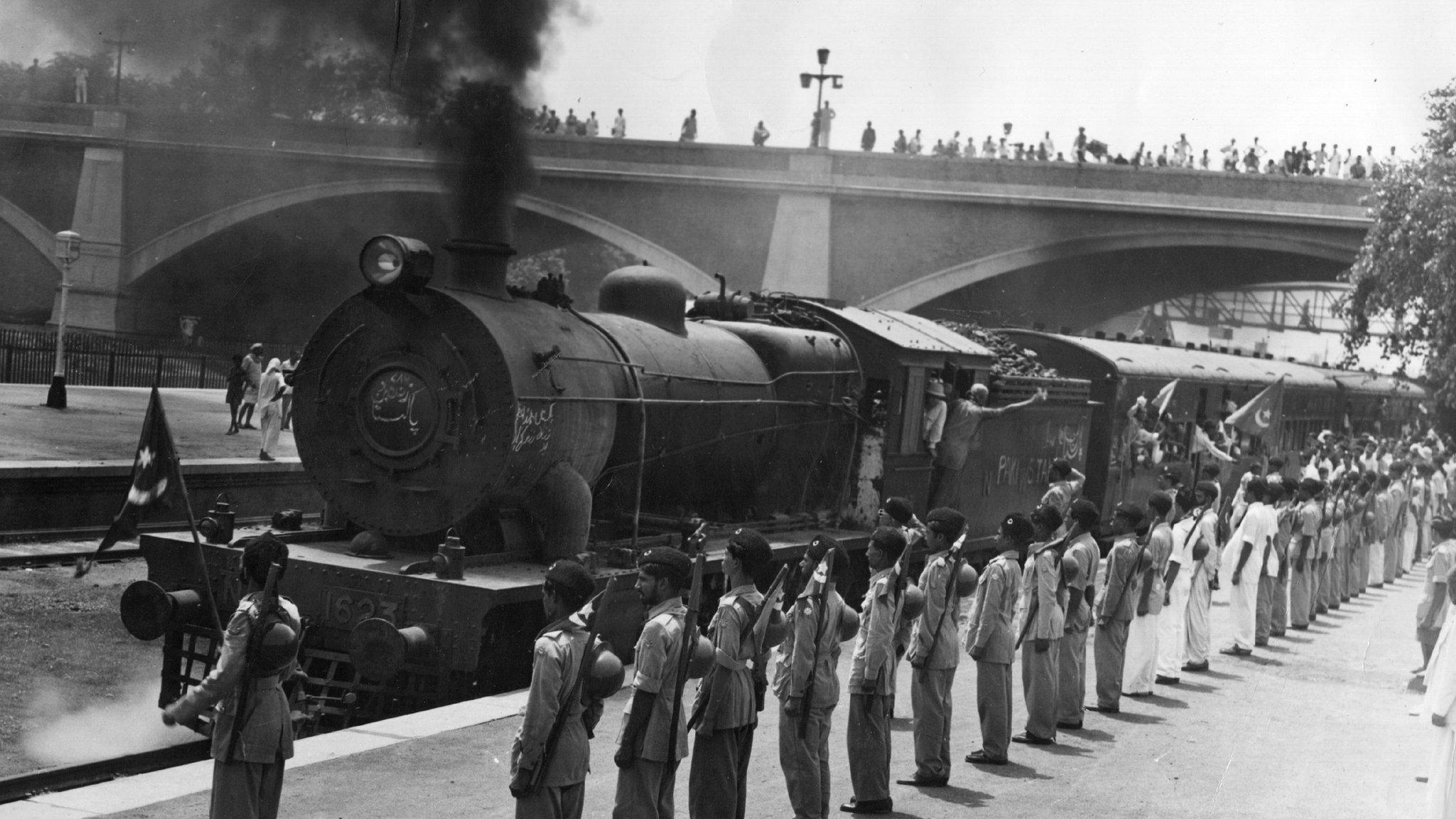
- Published6 December 2018
